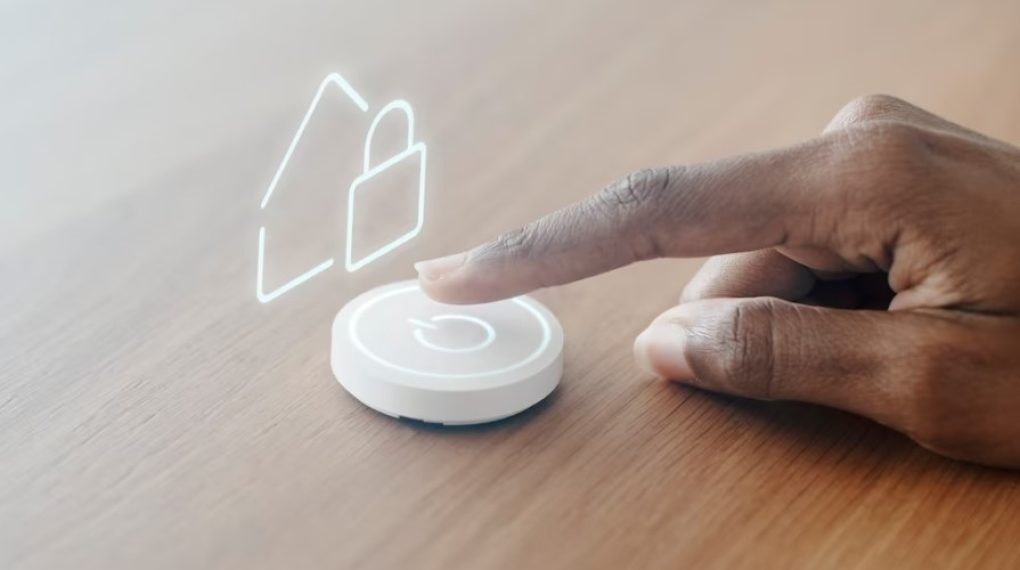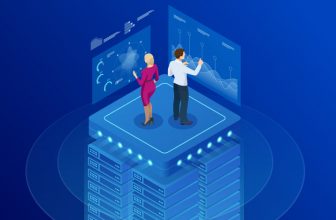
Access control is a critical component of modern security systems, ensuring that only authorized individuals are granted access to sensitive information and facilities. In recent years, access control has evolved rapidly, with the introduction of new technologies and an increased focus on cybersecurity. Here are some of the top access control trends that are shaping the industry today.
Multi-Factor Authentication

Multi-factor authentication (MFA) is a security measure that requires users to provide multiple forms of identification before they can access a system. This helps to ensure that only authorized individuals are granted access and that passwords alone are not enough to compromise the system. Common forms of MFA include passwords, security tokens, biometrics such as fingerprints or facial recognition, and smart devices such as mobile phones.
Artificial Intelligence
Artificial Intelligence (AI) is playing an increasingly important role in access control, providing advanced threat detection and response capabilities. AI-powered systems can automatically identify and alert administrators to potential security threats, such as unusual login patterns or attempts to access restricted areas. They can also analyze data from multiple sources to identify and respond to emerging security risks in real-time.
Cloud-Based Access Control
Cloud computing is transforming the way that access control systems are managed, allowing administrators to monitor and control access from anywhere, at any time. With cloud-based access control, organizations can leverage the scalability and reliability of the cloud to manage large and complex access control systems. This makes it easier to manage and maintain the system, reduce costs, and ensure that the system is always up to date with the latest security features and functionalities.
Physical Access Control

Physical access control systems are used to secure buildings, facilities, and other physical assets. These systems typically use smart devices such as key fobs, cards, and biometrics to grant access to authorized individuals. In recent years, the development of new technologies such as smart locks, biometric readers, and mobile access control has made it easier and more cost-effective to secure physical assets.
Internet Of Things
The Internet of Things (IoT) is changing the way that access control systems are integrated and managed. By integrating IoT devices with access control systems, organizations can provide real-time monitoring and control of access points, such as doors, gates, and turnstiles. This allows administrators to quickly respond to security threats, monitor activity in real-time, and gather data that can be used to improve security over time.
Mobile Access Control
Mobile access control allows users to control access to facilities using their mobile devices. This makes it easier and more convenient for individuals to access the buildings, facilities, and assets they need, while also providing an extra layer of security. With mobile access control, administrators can grant and revoke access rights in real time, reducing the risk of unauthorized access.
Cybersecurity
Cybersecurity is a critical concern for access control systems, as they are vulnerable to a range of cyber threats such as hacking, phishing, and malware.
To protect access control systems, organizations need to implement robust cybersecurity measures, including firewalls, intrusion detection systems, and anti-virus software. It’s also important to educate users on safe practices, such as creating strong passwords, avoiding suspicious emails, and reporting any security incidents.
Integration With Other Systems
Access control systems are often integrated with other security systems, such as fire alarms, video surveillance, and intrusion detection. This allows organizations to create a comprehensive security solution that provides real-time monitoring and response capabilities. By integrating these systems, organizations can improve security, reduce costs, and streamline the management of multiple systems.
Data Privacy

Access control systems collect and store sensitive information about individuals, such as their names, addresses, and biometric data. It’s crucial to ensure that this information is protected and that the privacy of individuals is respected.
Organizations should implement data privacy policies and ensure that access control systems comply with regulations such as the General Data Protection Regulation (GDPR) and the Health Insurance Portability and Accountability Act (HIPAA). This helps to protect the privacy and security of sensitive information, build trust with customers, and avoid potential legal and financial consequences.
Compliance With Regulations
Organizations must comply with a range of regulations, such as the Payment Card Industry Data Security Standard (PCI-DSS), that impact the design, implementation, and use of access control systems. These regulations help to ensure that organizations are implementing robust security measures and that customer information is protected.
Organizations should work with security experts to understand the regulations that apply to their operations and implement access control systems that meet these requirements.
In conclusion, access control is a rapidly evolving field that is critical to the security of organizations and their customers. By staying up-to-date with the latest trends and technologies, organizations can implement effective security solutions that protect against a range of threats, ensure data privacy, and comply with industry regulations.
Whether you’re looking to secure your physical assets, monitor and control access in real time, or protect against cyber threats, there’s an access control solution that can meet your needs.
Read Also:






